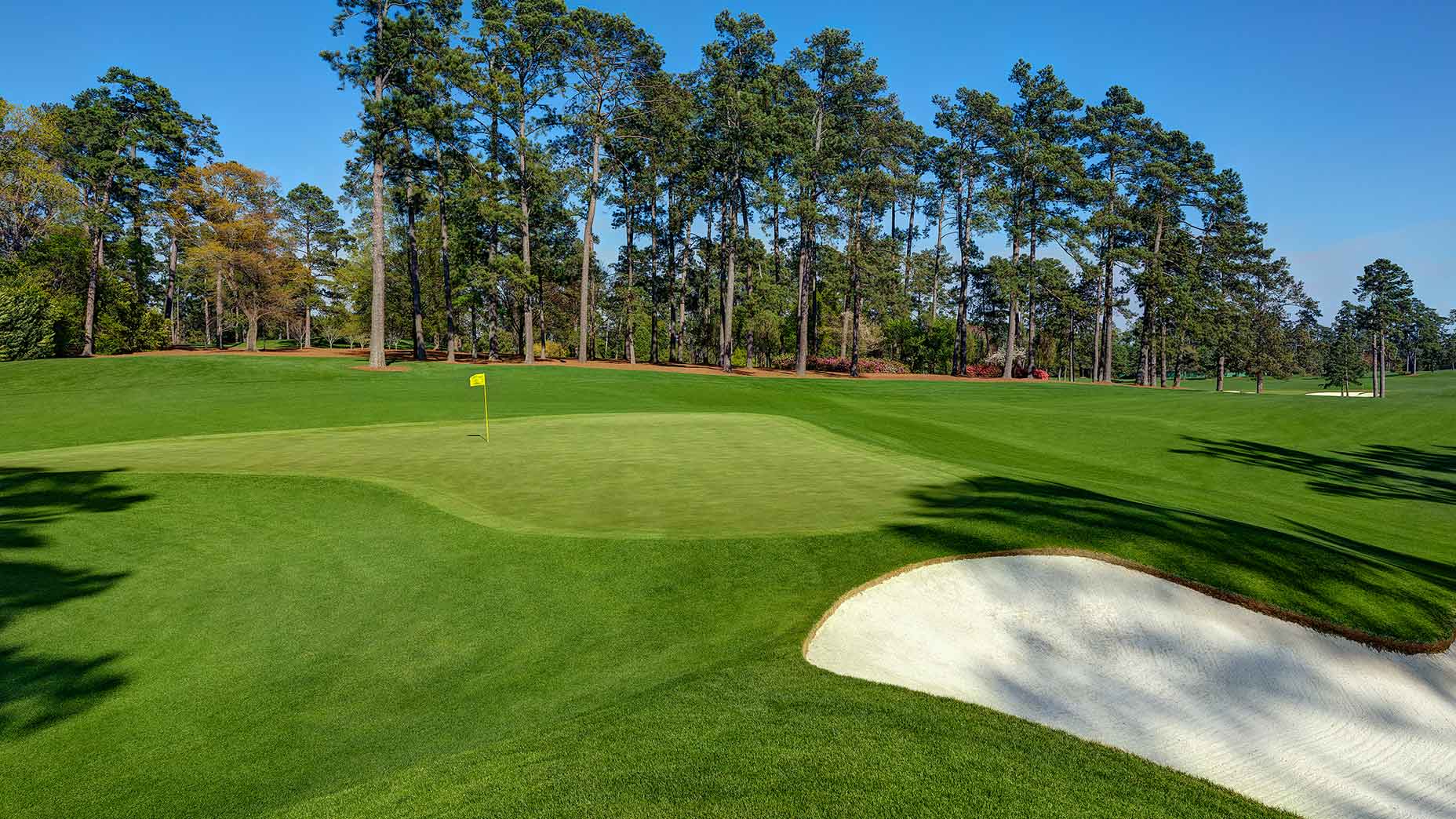GOLF’s Top 100 course panelists are among the most respected and well-traveled course evaluators in the game. They’re also keen to share their opinions. In this GOLF.com series, we’ll unlock their unvarnished views on all questions course-related. Check out GOLF’s latest Top 100 Courses in the U.S., Top 100 Courses in the World, Top 100 Courses You Can Play, Best Municipal Courses in the U.S., and 100 Best Short Courses. Meet all of our Top 100 panelists here.
What’s the best (and least best!) hole at Augusta National?
Jeff Lewis (has played 96 of GOLF’s Top 100 Courses in the World): The 13th is not only the best hole at Augusta, it is arguably the best hole in the world, despite the attempts that technology and pushing the tee farther back are making at undercutting that position. Great golf holes present a two-step process: decide, then execute. There is nothing like the picture of a pro with a hanging lie in the 13th fairway with his hands on his hips, wondering what to do. The hole gets less interesting when lengthened and when the ball is harder to curve, but it is still outrageously good. As for “least best,” for me that’s a layup: the par-3 16th, a Robert Trent Jones hole that is totally out of character with the rest of the course. When holes either dictate strategy or fail to differentiate good and bad shots, they are bad holes, and the 16th does both.
Pete Phipps (has played 71 of GOLF’s Top 100 Courses in the World): The 3rd hole is probably the most underrated and underappreciated hole at Augusta National, yet one of the best architecturally. As with all great short par-4s, it offers risk/reward and keeps you on your toes from start to finish. You have to decide driver or iron off the tee, depending on whether you want to get past or stay short of a hidden-yet-brutal fairway bunker. No matter what distance you have left for your approach, the green is both shockingly elevated and narrow. If you miss short, the ball will roll all the way down to the bottom. Going over the small green is equally discouraging, as you’ll have a very hard time getting up and down. If played well, the 3rd can be considered an “easy hole” based on the length, but many have walked off with bogey or worse wondering how they skinned their knees on it.
The 8th hole isn’t terribly exciting compared to the rest of the course. The drive is mostly uneventful as long as you miss the bunker on the right. The second is a complete blind shot, so it’s mostly a hit and hope. Bailing out to a wide open area to the right is a smart option. The green does have some neat mounds on each side and the green has some movement, but compared to the rest of the course, this hole doesn’t exude the same level of amazement.
Thomas Brown (has played 95 of GOLF’s Top 100 Courses in the World): I’ll second Pete’s nomination for the 3rd hole, but the 9th hole has yet to gain my affection. At 350 yards uphill, the 3rd has become a drivable par-4 in recent years. Like many of the greens at Augusta National, the 3rd is deceiving. It is extremely difficult to read how much break you need to borrow, particularly on the left-front hole location. I’d guess the guests of members anticipate and remember their lucky day playing Augusta National more than the players vying annually for the green jacket. And a little over 30 minutes into your round, the speed at the sloping 3rd green introduces a jolt of fear for the skill required both in judgment and execution.
Christian Faergemann (has played 72 of GOLF’s Top 100 Courses in the World): I agree with both Pete and Tom regarding the 3rd hole. The architectural strategy is spot-on for a short and now drivable par-4. The hole has survived evolution, and even though tour players are now longer off the tee and are able to reach the green, it’s still a very challenging approach with the narrow and tilted elevated putting surface. My least-favorite hole is probably the 4th. The long downhill par-3 just doesn’t excite me too much and feels a bit like a connection hole, a means of getting you from the 3rd to the 5th.
